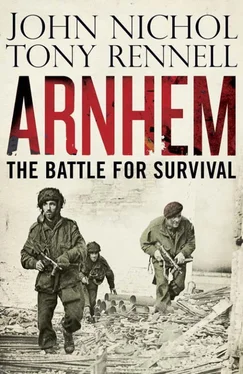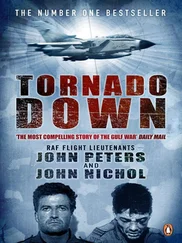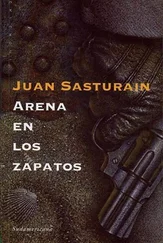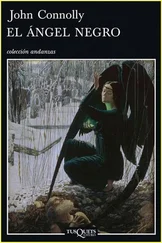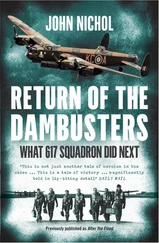At more than a dozen airfields, trucks filled with troops were arriving. In some, men sat in silence, pondering what lay ahead. In others, noisy chatter covered nerves or one soldier would begin to hum and the rest joined in until, as they careered at speed through sleeping villages, everyone was roaring out some reassuring ditty: ‘That’s my brother Sylvest/ Gawt a row of bloody medals on his chest, big chest/ ’E fought forty soldiers in the west/ That’s my brother Sylvest.’ At some airfields, they were welcomed with a rare treat – ham sandwiches, handed out by ladies of the WRVS. ‘I hadn’t seen boiled ham for five years,’ Leo Hall recalled. Each aerodrome bustled with intense activity around the planes, parked nose to tail, engines ticking over. Each ‘stick’ made its way to its allotted plane and sat down on the grass to wait. Not that sitting was easy. At Barkston Heath in Lincolnshire, Reg Curtis of 1 Para – feeling at one moment like ‘a stuffed duck’ and then ‘a well overdue pregnant hippo!’ – checked off his gear: ‘One Gammon bomb, two hand grenades, combined pick and shovel, web equipment with small pack, two ammunition pouches, a canvas bandolier with 303 rifle ammo, a water bottle, mess tin, iron ration, emergency chocolate, field dressing, a camouflage net scarf, triangle-shape air-recognition bright yellow silk scarf which was tied around the neck ready for instant use, one rifle, an ingenious escape outfit comprising a silk map of Europe, a button compass about half an inch in diameter, a strong file as big as a nail file. That was about it, except for a kit bag strapped to my leg and parachute, plus Mae West life jacket in case we finished up in the drink. I also had a couple of hundred cigarettes and two bars of chocolate and some boiled sweets.’ [3] Reg Curtis, Tafelberg . BN1 Publishing, and JN interviews, 2010.
One para officer calculated his jumping weight at 22 stone, not including the folding bike he was carrying.
Curtis was in the main pack that day, but leading the way – twenty minutes ahead of everyone else – would be Ron Kent’s company. As the pathfinders on this mission, they had to pinpoint the right landing zone, and he and the navigator of his allotted plane stood on the runway checking maps against recent aerial photographs. ‘I pointed out the long rectangular shape of a barn near the centre of our DZ and asked if he could put us down within a hundred yards. He saw no problem.’ The time came to board. With a casualness he did not feel inside, Kent called his seventeen-man stick to attention and wished them luck. ‘Then, I took my place in the line, at number six.’ Within ten minutes they were airborne, climbing and circling to get into formation with the other planes in the advance party. ‘Flying in these conditions was boring and uncomfortable. We were seated on the bare floor of the fuselage facing one another but the noise of the engines made normal conversation impossible. The British never designed an aircraft specifically for parachuting, and we often thought this was deliberate. It meant we were always glad to jump when the moment came.’
Time dragged. Anxiety about what lay ahead constantly threatened to get the better of even the toughest. ‘After an hour or so in the air I found myself looking at my watch rather too often and beginning to yawn. Signs of nervousness.’ Kent’s every move was being watched and he must not let his feelings show – fear, though understandable, was contagious, especially in the claustrophobic confines of a plane. ‘I stood up and moved down the line nodding, winking and grinning, I hope, reassuringly.’ His corporal, who would be jumping last and whose job was to hustle the rest of the stick out in double-quick time to ensure a tight formation on the ground, beckoned him over. ‘How long to go, Sarge?’ he mouthed through the din. Kent cupped his mouth to the man’s ear. ‘About half an hour. It can’t be too soon for me.’ The corporal nodded in agreement. ‘I gave his shoulder a friendly thump and made my way back to my place.’
A sign from a crewman prompted Kent to plug in his intercom. The pilot’s voice flooded calmly into his earpiece: ‘We’ll be crossing the Dutch coast in a few minutes. Then we’ll open up the hatches to give your chaps a blow of fresh air. We alter course soon after, and begin our run-in in about twenty minutes. It’s a lovely day up front, and your drop should be a piece of cake. I should get your chaps hooked up now and then stand by. Good luck and cheerio.’
On Kent’s command, the stick of hunched, thoughtful men came to life. Heavily laden with their equipment, they scrambled to a semi-crouch position. An RAF dispatcher moved methodically between the two shuffling and swaying lines, checking that parachutes were properly hooked to the static line which ran the length of the fuselage and automatically triggered the canopy as each man exited the plane. The twin flaps of the large jump hatch – coffin-shaped, Kent noted – opened, and sunlight and fresh air streamed in. The word was passed – ten minutes to go. ‘We all stood up and, taking care that our static lines did not become snarled up round someone’s ankle, we eased our way closer to the hole. I began to sweat. Weighted down with the parachute pack on my back and full battle order on my chest, my helmet (the top of which was stuffed with half a pound of pipe tobacco) on my head and securely strapped with its chin piece in place, I waited my place in the queue.’ This was always a moment unlike any other, as each man struggled with his thoughts – the fear of jumping, the fear of the humiliating consequences of not jumping. [4] Apart from the shame and ridicule, this was a court-martial offence.
‘Then the engines throttled back. We started to lose height. Through the hole, I could now see the ground. We were beginning the run-in.’
If they had hoped to sneak in totally unnoticed, they were disappointed. Kent heard ‘pinging noises, metal on metal, and I guessed we were coming under small-arms fire from the ground. In the roof above the hole, a red light flashed on. The men at the front poised on the edge and the rest of us pressed forward, practically on each other’s backs. The red changed to green and, as if by magic, the men before me disappeared and I was at the aperture and through it and into the slipstream.’ He struggled in the rushing air. His parachute did not completely fill. He was falling too fast. He only had seconds to jerk and twist his body to untangle the lines. He managed this in time to slow his descent and drop gently on to a ploughed field, just yards away from that long barn he had been aiming at. The first men were down on the heath between the villages of Renkum and Wolfheze, five miles to the east of the bridge they had come to capture. The Battle of Arnhem was under way.
Ron Kent was still tangled up in the rigging of his parachute and struggling to free himself when, across the heath where he’d landed, he saw someone rushing towards him. The sergeant, in the advance party of parachutists dropping to secure the landing zone on Renkum Heath, reached for his revolver, a Colt automatic. But this was no hostile reception, no Nazi soldier with his finger on the trigger of a Schmeisser. Quite the opposite. The man, a Dutch civilian, was thrusting out his hand and excitedly greeting Kent as if he were a long-lost friend. ‘You are American?’ he asked, a suggestion that made Kent bristle. He’d had more than one dust-up with pushy, self-opinionated Yank soldiers in pubs back home acting as if they were the only ones who could win the war. Being mistaken for one now was galling. ‘No, we are British,’ he snapped, and turned to get on with the job of supervising his section, now that they were all down in one piece. Men were already spreading out panels on the ground in the shape of an ‘X’ [5] There were different symbols for specific units.
to mark the dropping point for the main force, just minutes behind now. A Eureka radio homing beacon was deployed and smoke candles lit to check the wind drift. The bulk of the troop fanned out and took up defensive positions around the drop zone. Then the men waited for the rest of 1st Airborne to arrive. Kent pulled a pack of tobacco from the stash inside his helmet, filled his pipe, lit up and relaxed. ‘It was a beautiful day, all too perfect to be true. If this was German-held territory, where were the Germans?’
Читать дальше
